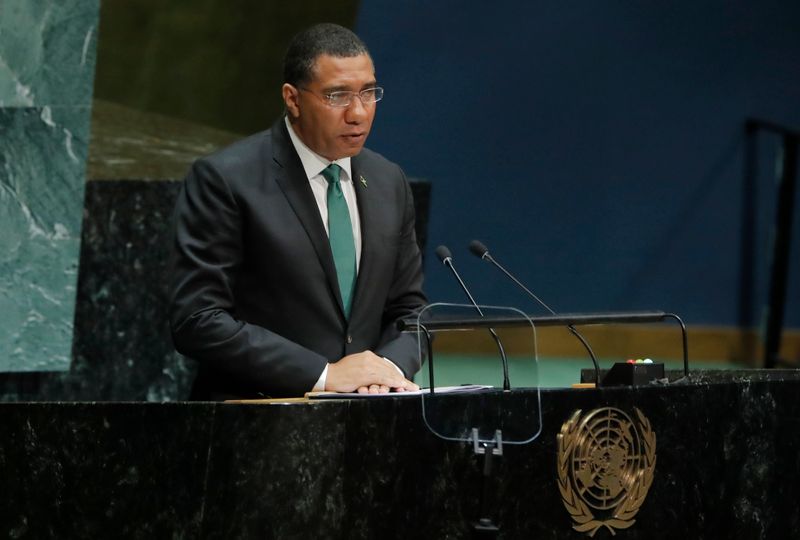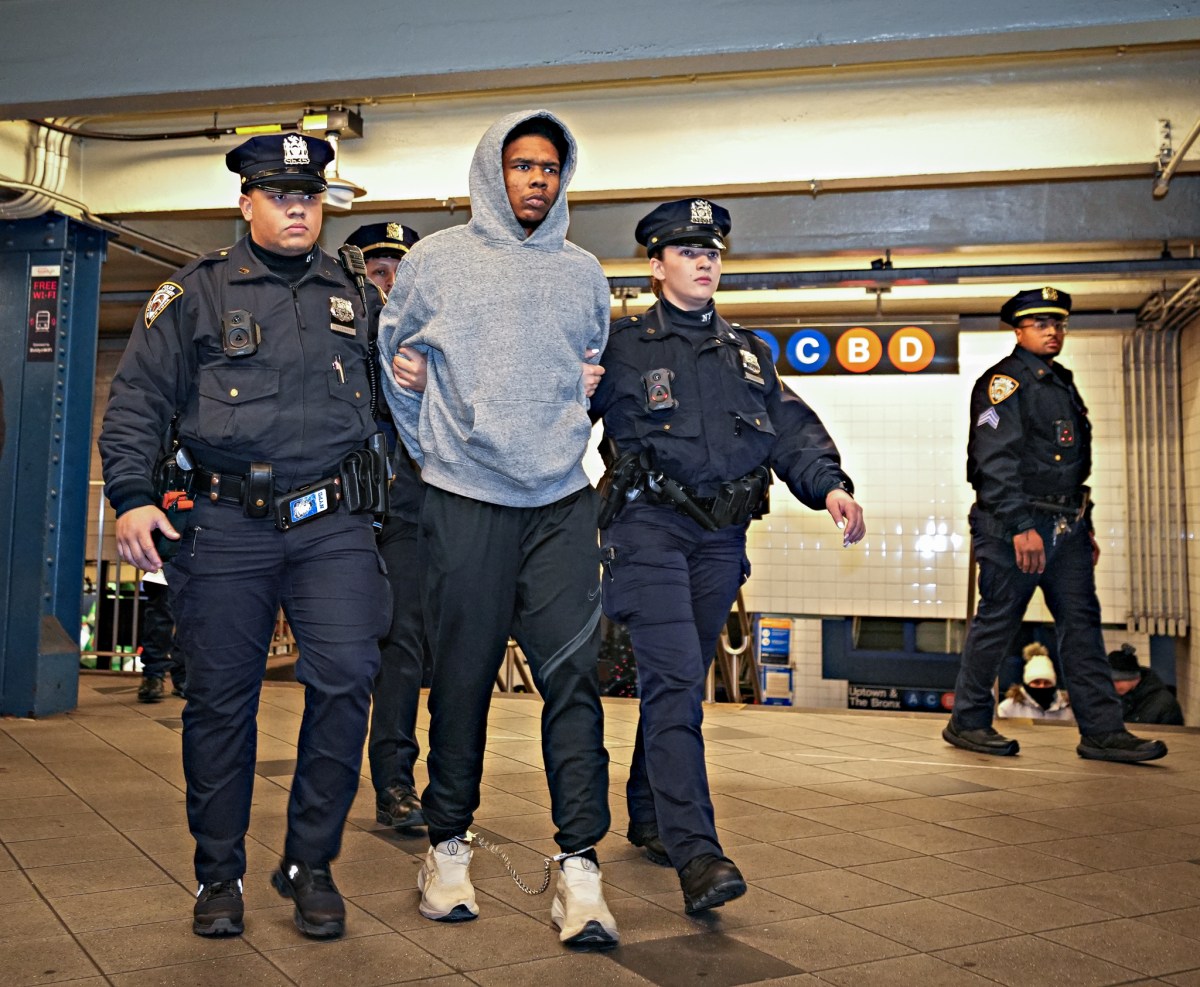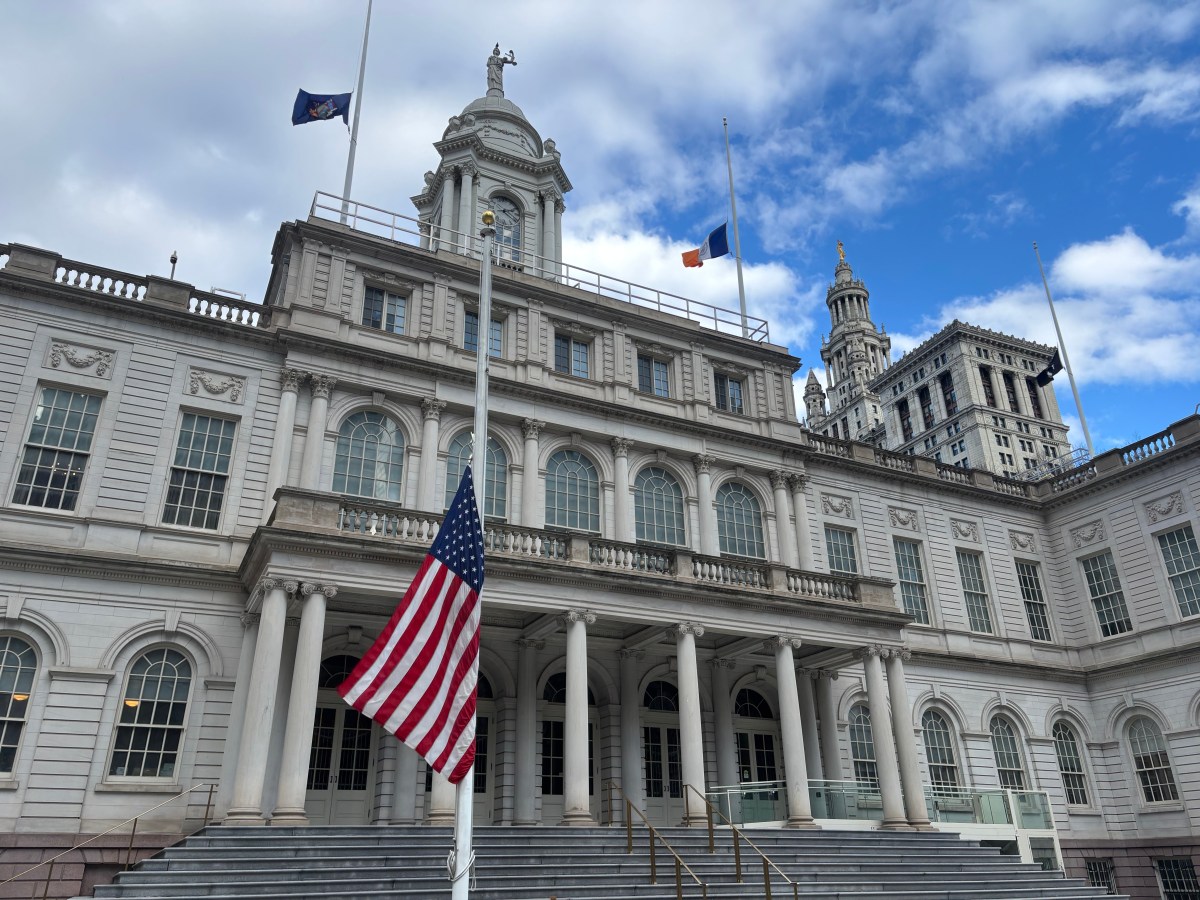KINGSTON (Reuters) – Jamaica will prohibit residents from leaving their homes for seven days spread over three weekends to contain an upsurge in coronavirus infections and shield its healthcare system, Prime Minister Andrew Holness said.
The Caribbean nation has been battling a third wave of infections, with the presence of the highly contagious Delta variant confirmed on the island.
“Our case numbers are unacceptably high and rising, and the rate of hospitalization is beyond – and I want to stress this – beyond the capacity of our health system, to cope,” Holness told a virtual news conference late on Thursday.
More than 550 people are hospitalized with COVID-19 in the island nation of almost three million people. To date, nearly 60,000 people have been infected with the coronavirus and more than 1,300 people have died.
Officials are concerned coronavirus is widespread, with a seven-day average positivity rate of 39%. The rate spiked after authorities eased containment measures last month.
“It is not going well right now, and we are really going to have to put in some serious measures to get the numbers down quickly,” said Jamaica’s Chief Medical Officer Jacquiline Bisasor-Mckenzie, who also spoke at the news conference.
Jamaica is to start its restrictions on movement on Sunday, with the first lockdown lasting three days, Holness said. There will be an identical three-day ban on movement the following weekend, and a one-day lockdown on Sunday, Sept. 5.
Jamaicans will be required to remain at home unless they are essential workers, although there will be some flexibility for citizens who have international travel plans, or appointments for a vaccination.
The country’s vaccination efforts have been sluggish, with only 5% of the population fully vaccinated.
(Reporting by Kate Chappell; Writing by Drazen Jorgic; editing by Barbara Lewis)




















